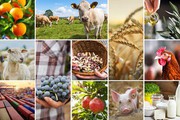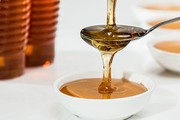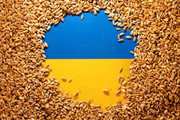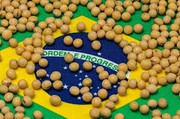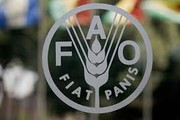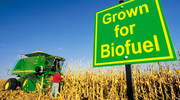World Agrinews
Short-term outlook report: war in Ukraine continues to impact EU farmers
The negative impacts of Russia’s invasion of Ukraine, and the ensuing high input costs and food inflation, continue to weigh on agricultural markets and consumers’ purchasing decisions. In addition, large parts of the EU experienced winter droughts after the hot and dry summer of last year, further worsening water availability in regions with already record low water reservoirs. This might lead impacted farmers to substitute away from more water-intensive crop cultures. The current EU macroeconomic forecast is relatively more positive than in autumn 2022, despite uncertainties about energy supply for next winter and recent financial market tensions. High commodity prices last year helped countering high input costs and farm income increased on average, with significant sectorial and regional disparities.
- Read more
- 806 reads
Nearly half of honey in European markets is fake, according to EU investigation
Nearly half of the honey imported into the European Union is suspected of being fake, according to an EU probe.
The research, spearheaded by the European Commission’s Anti-Fraud Office (OLAF) and the Joint Research Centre (JRC), revealed the massive fraud and that many may be buying counterfeit honey labelled as authentic.
- Read more
- 705 reads
Polish, Romanian PMs ask EU for mechanism to trace Ukraine grain exports
Romania and Poland are in talks with the European Commission over export tracing mechanisms for Ukrainian grains to ensure local farmers are not hurt by a flood of cheap imports, the Polish and Romanian prime ministers said on Tuesday.
Ukraine, one of the world's largest grain exporters, has seen its Black Sea ports blocked since Russia invaded more than a year ago and has been forced to find alternative shipping routes through European Union states Poland and Romania.
- Read more
- 632 reads
Australia set for record crop exports after heavy rains
Australia is expected to report record-breaking agricultural exports in the current financial year, the government said on Tuesday, after years of high rainfall boosted yields.
- Read more
- 694 reads
Argentina suspends poultry exports as first industrial case of bird flu confirmed
Argentina has confirmed its first case of bird flu in industrial poultry, its agriculture secretary said on Tuesday, causing it to suspend avian product exports and raising fears the disease could spread and hurt exports from the South American nation.
- Read more
- 621 reads
Forward sales of soybeans from Brazil are significantly lower than last year, indicating a drop in global demand
Much lower than last year, the volumes of forward sales of soybeans from Brazil indicate a reduction in global demand due to a decrease in imports by China. In addition, importers are restraining purchases in anticipation of a seasonal drop in soybean prices from South America, and producers have limited sales in the hope of rising prices, although they remain at a fairly high level.
- Read more
- 583 reads
FAO Food Price Index continues to decline
The FAO Food Price Index (FFPI) averaged 131.2 points in January 2023, down 1.1 points (0.8 percent) from December, marking the 10th consecutive monthly decline. With this latest decline, the index has fallen 28.6 points (17.9 percent) from the peak it reached in March 2022. The drop in the index in January was driven by declines in the price indices of vegetable oils, dairy and sugar, while those of cereals and meat remained largely stable.
- Read more
- 569 reads
The announcement by the Western partners about the transfer of tanks for Ukraine pushed up the prices of wheat - British analysts
World wheat prices rose after Germany and other countries announced their intention to supply main battle tanks to Ukraine on January 25.
Agrarheute writes about this with reference to data from the British Agricultural and Horticultural Development Board (AHDB).
- Read more
- 556 reads
Romania asks for compensation from the EU for the losses suffered in agriculture amid Ukraine war
Romania and five other EU states want compensation for the damage they suffered due to the fact that cheap wheat from Ukraine, left on European territory, is affecting their own sales. They ask the European Commission for a quick solution and the export of Ukrainian wheat to its final destination, namely Africa.
- Read more
- 706 reads
German plans to end crop-based biofuels would hit farmers, cut rapeseed output
Any German government plans to stop crop-based biofuel production would severely hit farmers and cut rapeseed output, Thomas Mielke, CEO of Hamburg-based oilseeds analysts Oil World said on Wednesday.
- Read more
- 679 reads
